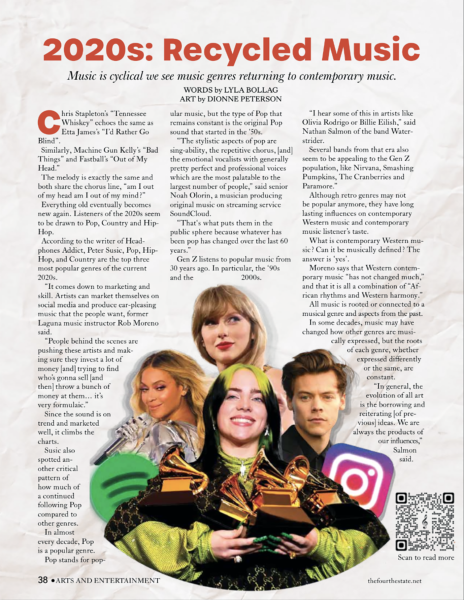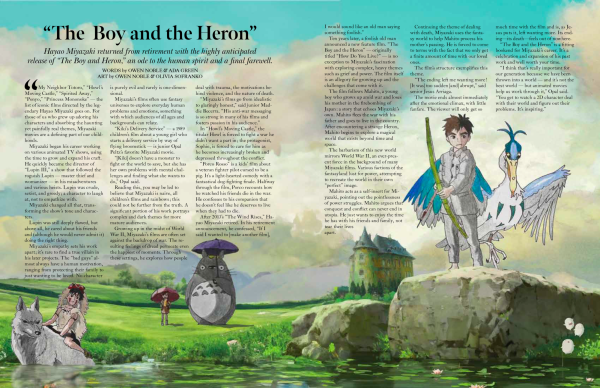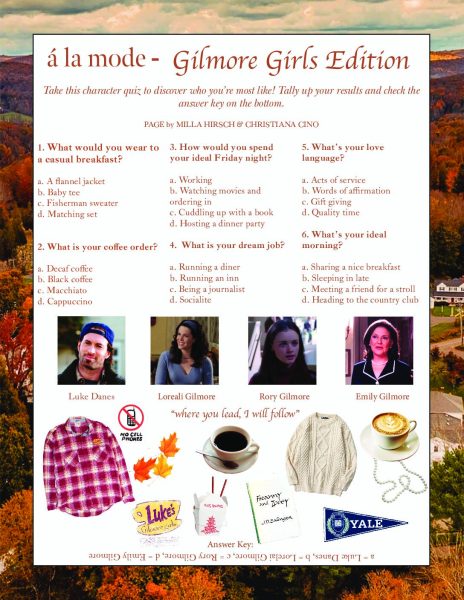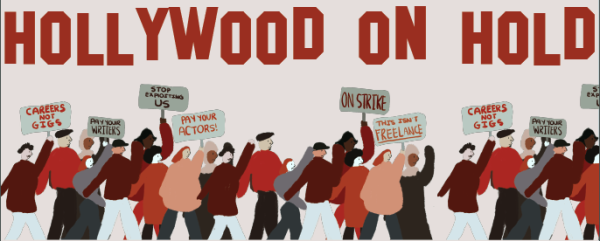All Too Familiar: Nostalgia in the Music Industry

January 13, 2017
Tune in to Musical Plagarism
Technology-wise, the world is continually sounding much-too-similar to songs released looking at what lies ahead. But within the entertainment stratosphere, the masses seem to be looking behind, back at where man has already tread. e past seems to be repeating itself — whether it be through music or movie plots that seem eerily similar to those released decades ago.
Musically-evoked nostalgia proves itself to be immensely powerful and transportive. Songs from a certain time in our lives provoke all the feelings that surrounded us at that time; for better or for worse.
Every song contains patterns of notes, and, whether we realize it or not, one of the hardest things to do is to fabricate an original tune without any outside in uence. Whether the song has the slightest in uence or a whole verse of pre-created content, the music industry is taking advantage of music’s ability to create these moments of memories through music.
Even as one who does not consider themselves an “artist” in any way, coming up with an original melody is extremely diffcult, and resemblance to some existing song is almost inevitable.
The question facing artists and listeners globally proves itself to be: is anything really original anymore? Current artists are taking advantage of this sensation, and incorporat- ing elements of music’s past and using them in their own content; such as re-vamping a familiar melody, or using the backbeat of a vintage tune. But is it even their own if it is based on other artists’ work?
Due to this recent trend, music artists of all genres are facing lawsuits due to their music sounding much-to-similar to songs released not long ago.
Sam Smith, a British singer-songwriter with a smooth, brooding voice and a knack for emotional ballads, was questioned after the release of his 2014 ballad, “Stay With Me,” which sounds suspiciously similar to Tom Petty’s “I Won’t Back Down” (1989).
After a lawsuit and a closed-door court case, Petty was awarded 12.5 percent of roy- alties earned from Smith’s Grammy-winning track due to the similarities between the songs. Though Petty was understanding and said, “…these things can happen.” Smith’s representatives adamantly claimed that it was all “coincidence.”
So where do we, as listeners, as well as the multitude of content-creating artists, draw the line? When is a song no longer original?
To what point within the foggy haze that composes the creative spectrum of music cre- ation is an artist allowed to borrow inspira- tion from their fellow creators?
This controversial question is emerging more prominently in the entertainment industry and culture recently, and an answer is yet to be found.
Mark Ronson, Grammy-winning music producer, bases his music career o of “sampling”, a process in which he uses past tracks and revamps them into new creations, almost indistinguishable from the original songs. He demonstrated this talent during a 2014 Ted Talk. Ronson sat down with NPR in 2013, where he was asked about his music philosophy and his feelings toward originality and personal creativity in terms of his place in the music industry.
When asked if he thought that any piece of music could be called “original,” he responded that it would be hard to not compare any piece of music released to another, it’s inevitable. But he believes that progressive music is progressive, and can be even more interest- ing to listen to and to create. Not only does he stand by his positive stance on music sampling, he supports its ability to completely transform a song and to bring it back to life as something completely new, even though the song itself isn’t new in the beginning of the process.
The environment in which one lives and exists in uences; whether we like it or not. Everything around us somehow a ects our life and our actions, and this applies to music as much as it does with anything else. And whether or not artists make that in uence noticeable is either a conscious decision or an unavoidable mistake.
Nostalgia is a feeling experienced universally; it is an unavoidable, serendipitous reminder of memories and experiences connected and hidden within the depths of our brain, lured out by once-familiar tunes and melodies. And as the world continues to turn, the songs we all once knew and loved will emerge once again, seemingly different, maybe, but undeniably the same.
All of the best times of their lives were lived out in the past, and, for adults, it’s a past that they’d give anything to go back to. The world is a lot more complicated these days, and if there’s one thing that people hate, it’s complexity. If there’s another, it’s change.
It’s this desperation to hold onto the past, the golden age of our youth, that the entertainment has seized upon shamelessly. Amidst the monsoon of reboots, remakes, rehashes and retreads that has flooded our theaters, few films stand above the rest, while many trickle through the grating of the public consciousness and dribble into the sewers of movie purgatory.
Yet film companies keep making them. Any given weekend theaters are chock full of movies that are pulled straight from mom and pop’s childhood. This year alone has brought us “Ben Hur,” “The Magnificent Seven,” “The Jungle Book” and many others.
Oftentimes these movies have mediocre reviews, some are even critically panned, but people continue to flock to cinemas in droves. They hand over their money to see a movie that they’ve already seen, just so that they can relive the past for a few hours.
A recent concept to hit the movie industry is the idea of a multi-year franchise. History’s highest grossing movie franchise, the Marvel Cinematic Universe, has based its entire marketing plan on the draw of comics written 10, 20, 70 years ago. And if you listen to the numbers, it’s working.
The lowest-grossing movie in the MCU, 2008’s “The Incredible Hulk,” grossed over $263 million worldwide.
The world has changed a lot over the past thirty years, and some people are still trying to forget about that change.
The majority of moviegoers are in their mid twenties to late thirties, and these children of the eighties and early nineties go to the movies to hold onto any last shreds of the past that they can.
While they do, the movie industry is changing to reflect that. The idea of original content is no longer as appealing as it once was.
For example, take Quentin Tarantino. Tarantino was one of the most visionary filmmakers of the 1990s and 2000s, and the creator of legendary films like “Pulp Fiction” and “Kill Bill.”
He pushed the limits of cinematic possibility, and he did it with style. His newest movie, “The Hateful Eight,” released last December, is different: instead of something bold and new, it is an homage to the westerns of the past.
He even went so far as to shoot in 70mm film, a format famously used in movies such as “Lawrence of Arabia,” which is considered archaic compared to today’s digital and 35mm.
The movie, unlike many of Tarantino’s other, much more original movies, is three hours and seven minutes of pure throwback. It could’ve been stolen straight out of the days of the spaghetti western.
Television is going in the same direction: backwards. “Stranger Things,” released as a Netflix original and exclusive earlier this year, was a national phenomenon. It perfectly recreates the 1980s science fiction books and movies of Stephen King and Steven Spielberg.
It managed to capture the vibe of the era perfectly, from the well-placed retro cereal box to the main characters’ bicycles to the color profile of the footage itself.
Critics and viewers loved “Stranger Things.” It garnered a 95 percent on Rotten Tomatoes, a website that compiles movie reviews from all of the major critics.
That score, however, is a testament to the quality, not the originality. No matter how good they make “Stranger Things,” that does nothing to change the fact that it’s a rehash of the 80s, entertaining or not.
Entertainment, in some ways, has changed a lot over the past decades. Visual effects have improved, blockbuster budgets have increased and studios’ movie schedules have gotten fuller and fuller.
In other ways, however, not much has changed at all. Filmmakers seem content continuing to churn out cash cows that echo, or sometimes even directly copy, the classic entertainment that their viewers grew up with. It’s all perfectly legal… but is it morally right?
Movies and TV govern our lives. The shows and films that we watch daily tell us what to buy, how to think and who we should be.
We have a seemingly constant onslaught of entertainment, and the creators of this entertainment seem to take quantity over quality more often than not.
When an increasing number of critical failures have made hundreds of millions of dollars, it throws the entire methodology of movie critique into question.
Should movies be judged for how artful they are, or should they be judged for their quality and originality?
Or should they be judged by how they make you feel content and secure in the happy blanket of the past? It is the moviegoers’ choice, and, for the sake of the film industry, one would hope that they make the right one.

















